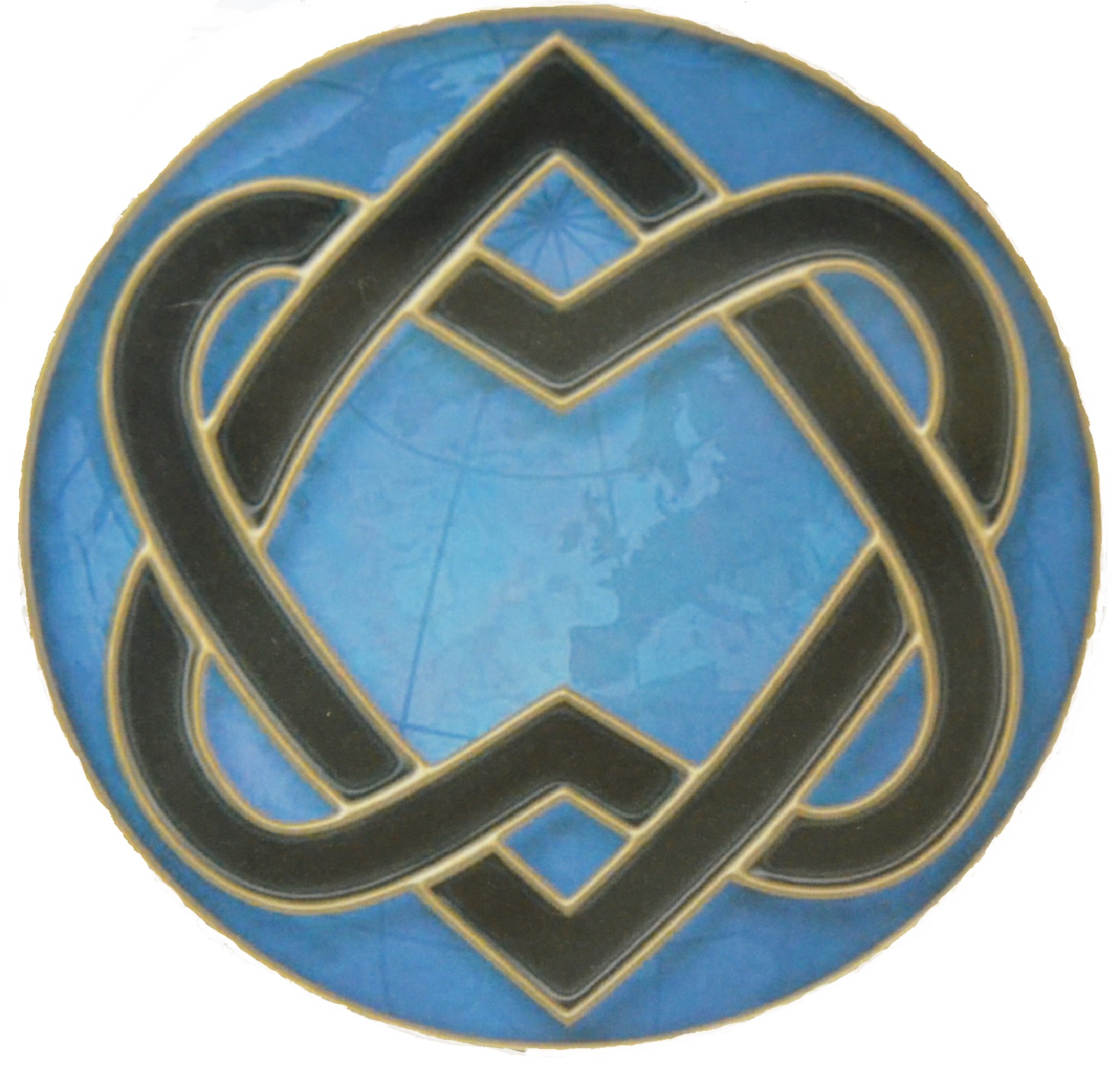Episodes

Wednesday Nov 30, 2016
Gift Giving and the Mandate of Reciprocity: Abraham and Marcel Mauss
Wednesday Nov 30, 2016
Wednesday Nov 30, 2016
(Something to think about before Hanukkah's gift exchange...] I read Abraham's penchant for gift giving and hospitality --and his contrasting refusal to accept a discount from the Hebron locals for the prime burial cave-- through the lens of French-Jewish sociologist Marcel Mauss's book The Gift: The Form and Reason for Exchange in Archaic Societies, his landmark study of the centrality of gift giving in tribal societies. (The book became highly influential on French literary theory, and Mauss himself was the founder of the French Academy for Sociology, along with his famous uncle and mentor, Emil Durkheim, also Jewish, whose Elementary Forms of the Religious Life --which focuses on religion as a community, not a faith, phenomenon-- is still a required classic in the field of religion today.) What's the difference between systems of gift exchange and of money/barter exchange? What different obligations are involved? What does it mean to accept a gift, even today? What cost is there to chasing sales and Black Friday discounts? And how does this relate to the Lubavitcher Rebbe's comment that "Abraham knew that nothing comes for free?" (Comments from participants have been edited out as they were not picked up by the microphone.)

Thursday Nov 24, 2016
Technology Standing in the Way of Mindful Presence
Thursday Nov 24, 2016
Thursday Nov 24, 2016
[Posted in honor of Thanksgiving] We all say we should value gratitude more and express it, but does saying words of gratitude really mean you're grateful? Of course not! So how do we actually practice gratitude, which is a form of mindfulness? How is this mental state incompatible with a life tethered to electronics? I explore these themes drawing from the Siddur, and from the books "The Gifts of Imperfection" by Brene Brown and "Alone Together" by Sherry Turkle.

Saturday Nov 05, 2016
Water and Women: The Torah's Intentional Mysteries of Moses' Origin
Saturday Nov 05, 2016
Saturday Nov 05, 2016
Our Torah Class on Exodus chapter 2. Why so many ambiguities in Moses' origin? Who are his parents? Why he is raised by all women, but all the movies just focus on his relationships with men that are not found in the Torah? What does his name mean? Is Freud right that he's an Egyptian? How does his biography turn upside down the ancient-hero-origin-archetype according to Richard Elliot Friedman? Is the Torah doing all of this on purpose? Plus many more questions. (Note: I have removed the many questions and comments that were not picked up by the microphone, and just left responses.)

Monday Oct 31, 2016
Adam's, not Eve's, Fault: The False Golden Age of Women Knowing Their Place
Monday Oct 31, 2016
Monday Oct 31, 2016
In a time when so many of us are under pressure -- working night and day, taking care of the generation under us and the generation above us, watching our debts rise and the prospects of our children fade-- of course the solutions offered by those eager to capitalize on our anxiety is to call for a return to some Golden Age where those ones supposedly to blame for our problems because they didn't keep to their station are fenced out, and we are once again on top. The problem with this is that often those Golden Ages never existed: they are a fabrication about the past by those who want power. One such Golden Age that is offered up as "Traditional Judaism" is the one where women stayed in the home, having babies, and didn't seek to compete for control of the public realm with men, one where they leave Torah study to others. When I was speaking about this recently, one congregant said, "Look, Rabbi, I support egalitarianism, that's why I'm a Conservative Jew, but I also am deeply respectful of the Orthodox who are preserving Judaism the way it was." Only problem? The limitations on women are not the Judaism that was, but come from a modern reactionism that is recent. In the Shulkhan Arukh Code of Jewish Law (early 1500's), women read from the Torah. In the Talmud, women prayed our liturgy, and were not limited as they are in Ultra-Orthodoxy today to reading just Psalms. The earliest evidence for a separation mechitzah between men and women is found in the post-Talmudic medieval period in Muslim countries, adopting it from Islam. ["Traditional Judaism" should be understood as Biblical and Rabbinic Judaism, covering roughly 1200 BCE-1500 CE, not later emendations.] This "Golden Age" where "men and women knew their traditional Jewish roles" is a dangerous fiction, and dates mostly to the late Medieval period, and especially the 1800's, when laws and customs were ADDED [in violation of the Torah's rule that one may not add laws] in order to create these gender roles in a tradition that had been a champion of women's equality. In my sermon on Parashat Bereishit (Genesis), I compare the situation to the original blaming of women [especially in early Christian commentaries] for the world's problems --Eve being the weak link the Serpent tricks, and then she gives Adam to eat-- and instead locate the "sin" in Adam's adding an illegal fence around the tree to prevent her from touching it, a rule God never gave but meant, apparently, for her own good. The coincidence this week was divine: a photograph of our Simchat Torah celebration, with a woman carrying the Torah scroll, was met with a comment from an Orthodox woman that "the rabbi of your congregation should know that a woman is forbidden from touching a Torah scroll!" Really? That's news to our legal codes:
"All who are impure, even women who are menstruating, and even a non-Jew, may hold a Torah scroll and read from it, for words of Torah are not susceptible to impurity, provided that the holder's hands are not physically soiled or dirty. [If they are, then] they must wash their hands and then they may touch it." Laws of Torah Scrolls, 10:8, R. Moses Maimonides (c. 1180)

Monday Oct 24, 2016
Monday Oct 24, 2016
It's hard as a Jew not to be surprised, yet again, that we are building a sukkah mere hours following the intense period of introspection, prayer, self-examination, repair of relationships, internal inventories, repentance, forgiveness, and new year's resolutions that run from the beginning of the month of Elul all the way through Rosh Hashanah and Yom Kippur. Yes, we do it every year, but it still comes a shock. With Yom Kippur barely over, we are engaged in the building of a sukkah. Why? Does it serve some deep spiritual purpose? In this 8 minute teaching, I use Bill O'Hanlon's famous book, "Do One Thing Different: Ten Simple Ways to Change Your Life" to elucidate this deep spiritual purpose, the purpose of making it possible to actually fulfill the vows and resolutions made during the High Holidays, even when that path seems hard to get on directly. Often the indirect change approach is the most effective.

Tuesday Oct 18, 2016
The Same Old Story of a Demagogue's Insecurity in Exodus Chapter One
Tuesday Oct 18, 2016
Tuesday Oct 18, 2016
Don't blink or you'll miss it: two simple verses that help begin the Book of Exodus tell a story as ancient as our people and as recent as the nightly news tonight. What do Trump and Putin have in common with the "new king" who "arose over Egypt"? The wheels of history turn but the song remains the same. From Torah Study on October 16th.

Tuesday Sep 27, 2016
3-Minute Teaching on How to Focus for High Holidays
Tuesday Sep 27, 2016
Tuesday Sep 27, 2016
I tease out a teaching that Harold Kushner does using Erikson to focus us on how to use Tefilliah (introspective prayer) to guide us forward onto a path with God (teshuvah) rather than get hung up on the wrong thoughts. Then Sharna sings a gorgeous "Adon Selichot."

Sunday Sep 25, 2016
Sunday Sep 25, 2016
The ten days of awe, of Rosh Hashanah through Yom Kippur, characterize a special annual spirituality of healing relationships in one's life [making amends "between human beings"] culminating in a 25 hour introspective period [making amends "between the individual and God"] of intense prayer on Yom Kippur whereby we face God collectively as a flock and individually as a soul. What's the difference between this and all prayer? If we are a religion of collective judgment --whether as a People or as a Species-- as our Prophets stress, how do we relate to L'Eil Orech Din, the great prayer that says this is our annual moment of being singled out, each sheep from among the flock, for individual inspection by God? How does the ego trick us into avoiding the point of that individual moment of confession so that we cling to "I did the best I could, the rest is others' issues"? Through Teshuvah (getting back to the path ahead on which I walk with God), Tsedakah (acts of righteousness), and Tefillah (intense prayer/introspection) we re-energize ourselves, alter our consciousness, and "avert the severity of the divine decree that we are always unpredictably mortal." (L'eil Orech Din)

Monday Sep 19, 2016
Monday Sep 19, 2016
In this extended class, I discuss the origins of Biblical prophesy, historically and contextually, and we ask ourselves about the very nature of Revelation. Was it dictation from the sky? Was it ancient aliens? Was it hallucination? Why were light beams shooting out of Moses' head? And I also mention the relevance of the Carl Sagan book (and best movie about religion of all time) "Contact." To quote Matthew Mcconaughey in that movie, "Hey hey hey... it was God!"

Sunday Sep 11, 2016
Prophecy Replaced by Legalism? Halakhah and the Tao
Sunday Sep 11, 2016
Sunday Sep 11, 2016
While Judaism may not have much doctrine, one statement that operates doctrinally is the Rabbinic statement that prophecy ended after the Biblical prophets. Since then, we have the Jewish legal system producing "halakhah" (laws) to guide us instead of revelation producing halakhah. Legalism replacing inspired revelation? How is that supposed to work? I discuss the notion of halakhah and the important principle of halakhic pluralism.

